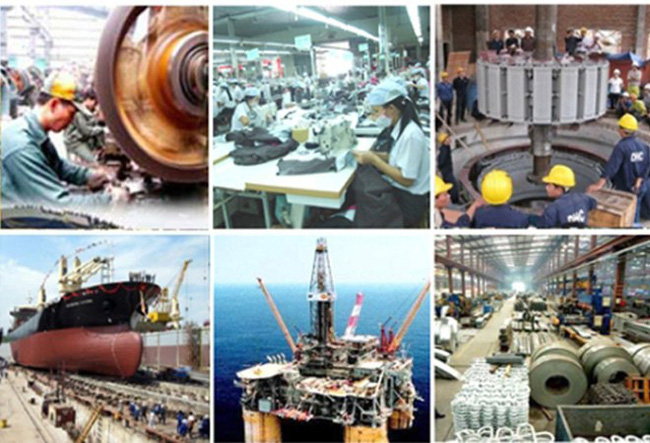Foreign investors still ignore SOE equitisation
 |
| Various large-scale state-owned enterprises are in the process of equitisation yet fly under the radars of international investors |
On October 30, Central Institute for Economic Management (CIEM) announced the results of the report on “Strategic shareholders in the equitisation of state-owned enterprises.”
With the intent of supporting the equitisation process and state divestments of equitised enterprises, CIEM conducted an independent research on the current situation and root causes of the inefficiency in the process of calling for strategic shareholders.
Supported by the American Chamber of Commerce (Amcham), the research aims to offer recommendations on current policies in order to enhance the efficiency of the equitisation and divestment of state-owned enterprises (SOEs).
To date, Vietnam has been making efforts to accelerate and enhance the equitisation process at SOEs.
Nguyen Dinh Cung, director of CIEM, asserted that one of the solutions to meet the target and turn the equitisation process more efficient as well as improve the management of equitised enterprises is to appeal to strategic shareholders, especially international strategic shareholders.
The previous researches unveiled strategic shareholders not only generate new financial resources but also added values for enterprises, such as advanced technologies, administrative skills, new networks and markets, which aid the growth of enterprises as well as contributes generously to the government budget and the growth of relevant industries.
He also added CIEM conducted a research on such issues in order to find solutions to appeal to strategic investors and to improve the efficiency of the equitisation process.
The research was carried out by consolidating research, analysing case studies, and conducting interviews with several SOEs that have been involved in the equitisation and state divestment process.
The research reveals key causes, explaining why the equitisation process in SOEs has failed to appeal to strategic shareholders (investors), especially international investors.
One of the causes is the reinforcement of regulations on the foreign ownership limit in specific industries.
In addition, the determination of business value and transaction cost of shares does not match international practices and fails to reflect the real value of businesses. Additionally, the lack of transparency in publishing information throughout the equitisation and divestment process makes foreign investors hesitant to make investments.
Besides, SOEs might be unattractive to foreign investors due to gaping internal weaknesses, such as ineffective and scattered investments across multiple industries, poor management¸ large accrued liabilities, and incompetent staff.
Moreover, the sluggish red tape in the complex equitisation process with infeasible requests drives foreign investors away from enrolling in the process.
Based on the outcome of the research, CIEM provided several specific proposals regarding current policies in order to enhance the attractiveness of equitisation and motivate strategic investors to get involved.
The first one is to clarify regulations related to the selection criteria of strategic investors which suit the operation of SOEs in order to eliminate short-term investors failing to generate real added value.
Secondly, the state should consider reaching out to foreign investors in different industries and professions who hold primary shares, especially in industries and professions unrelated to national security and sovereignty.
Thirdly, the determination of business value should be conducted independently by experienced international and domestic agencies on the basis of current laws and international practices.
Next, share values should be based on real business value instead of the transaction value listed on the stock exchange, as such value only represents a minority of the shares being traded and also depends on external factors and short-run market patterns.
Lastly, information of equitised SOEs must be publicised in a sufficient time frame to allow investors to inspect the information and evaluate business value prior to the bidding process.
What the stars mean:
★ Poor ★ ★ Promising ★★★ Good ★★★★ Very good ★★★★★ Exceptional
Latest News
More News
- State corporations poised to drive 2026 growth (February 03, 2026 | 13:58)
- Why high-tech talent will define Vietnam’s growth (February 02, 2026 | 10:47)
- FMCG resilience amid varying storms (February 02, 2026 | 10:00)
- Customs reforms strengthen business confidence, support trade growth (February 01, 2026 | 08:20)
- Vietnam and US to launch sixth trade negotiation round (January 30, 2026 | 15:19)
- Digital publishing emerges as key growth driver in Vietnam (January 30, 2026 | 10:59)
- EVN signs key contract for Tri An hydropower expansion (January 30, 2026 | 10:57)
- Vietnam to lead trade growth in ASEAN (January 29, 2026 | 15:08)
- Carlsberg Vietnam delivers Lunar New Year support in central region (January 28, 2026 | 17:19)
- TikTok penalised $35,000 in Vietnam for consumer protection violations (January 28, 2026 | 17:15)
















 Mobile Version
Mobile Version